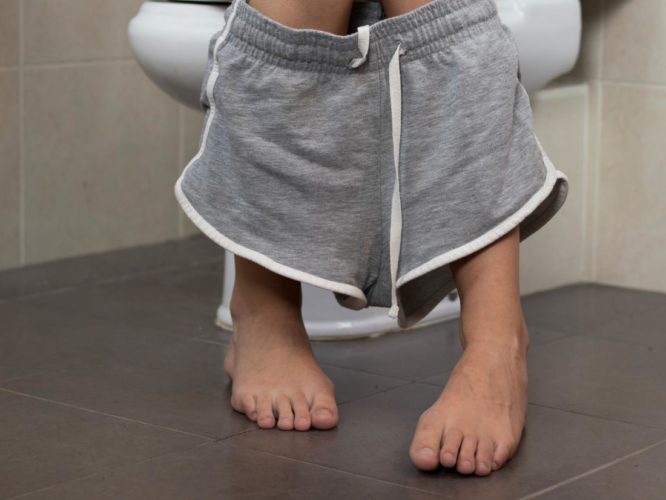Among several other health complications to pay attention to, piles also known as Haemorrhoids, attracts little or no attention due to the overlooking of some signals we assume to be normal when we see blood while defecating, not able to defecate for days and having to groan very hard when using the convenience.
Piles also called Haemorrhoids, are swollen blood vessels in the anus and lower rectum. Haemorrhoids develop when the veins of the rectum or anus become dilated or enlarged.
Speaking during an interview with FirstnewsHealthReporter, a Doctor at the Family Medicine Department, Babcock University, Illishan Remo, Ogun State, Dr Chukwuma Ogechukwu, explained that haemorrhoids also known piles had 75% incidence prevalence in Nigeria.
Ogechuckwu listed straining while defecating, constipation, pregnancy, chronic diarrhoea, obesity, anal sex and spinal cord injury as major factors that expose one to haemorrhoids.
According to him, there are no specific age groups, but studies have shown that peak incidence increases with age seen more in the age group 45 to 65years
The medical expert also listed the categories of haemorrhoids to include External haemorrhoids, which arise from the ectoderm and covered with squamous epithelium. It is also the most common type with symptoms like itching around the anus or rectal area, pain around the anus, lumps near or around the anus and blood in the stool.
However, internal haemorrhoid arises from embryonic endoderm and is lined with columnar epithelium mixed haemorrhoids.
When asked if the above mentioned types of haemorrhoids are deadly, he said, “No type is deadly but there are complications which can be managed.”
Ogechukwu, however, outlined effective treatments for haemorrhoids (piles) and these include conservative management, warm bath, high fibre diet and water, medical treatment, stool softner like docusate sodium, topical anaesthetics like lidocaine ointment, analgesics like acetaminophen, surgery, rubber band ligation, electrocautery , sclerotherapy , excision of thrombosis and surgical hemorrhoidectomy.
There are four stages of haemorrhoids before surgery is required: stage one haemorrhoids: Haemorrhoids that bleed, but do not prolapse. These are slightly enlarged hemorrhoids, but they do not protrude outside the anus.
Stage two hemorrhoids: Rectal mucosa that come out and go in on their own. These may come out of the anus during certain activities like passing stool, and then return inside the body.
Stage three hemorrhoids: Hemorrhoids that the rectal mucosa prolapse and must be pushed back in by a finger.
Stage four hemorrhoids: Rectal mucosa that prolapse and cannot be pushed back in the anal. At the fourth stage, elective surgery, hemorrhoidectomy, will be required.
Possible complications after the surgery are wound breakdown when passing stool and infections. However, proper antibiotics has to be prescribed for the anal pain in this case, the patient might be on analgesics and recurrence.
Also when asked if there were necessary precautions to be observed while undergoing treatment, he said, “No known precaution, except to look out for other underlying medical conditions.”
The doctor added that junk food, bread or any other food that will harden stool should be avoided by sufferers.
Moreso, the doctor said piles target pregnant women, but its causes remain unknown.
He said research believes hormonal changes or direct pressure is the culprit.
In order to protect toddlers from piles, the doctor said mothers should pay attention to hard stools, swollen abdomen and the case of not using the toilet for days.
Moreso, a toddler who cries while defecating should be closely watched by his mother.
By Wonder Olayemi















